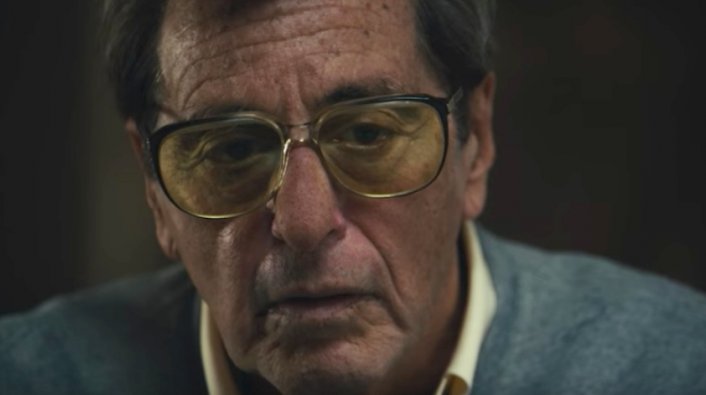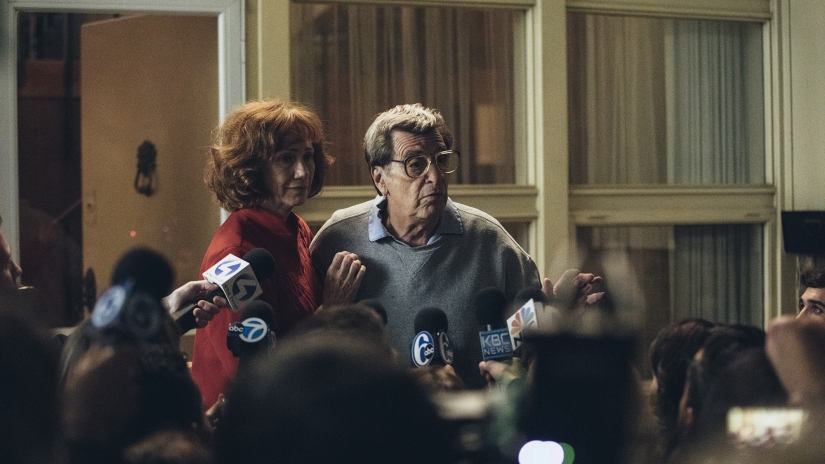

At best, it feels awfully familiar a man trying to come to term with his failings by flipping through the pages of a memory already not really inclined to examine much other than how to score touchdowns.


Told in flashback-a dying Paterno undergoing an MRI scan that attempts to awaken his memory, or at least come to terms honestly with what he knew-this framing device doesn’t particularly serve the story well. Paterno not only embodied football at Penn State, but its sterling reputation for being the best.Ĭommenting on the question of moral responsibility-which feels quaint in today’s day and age of vanished decency-Levinson’s drama also tracks two opposite lanes of experience: one of an inexperienced young cub reporter ( Riley Keough) who breaks the Paterno story in a local paper and eventually wins a Pulitzer Prize at the age of 22 for her stellar reporting, and Paterno, whose wisdom ultimately fails him.
Patterno hbo movie#
Set largely between the whirlwind two weeks of Paterno’s demise (he was fired, diagnosed with cancer, and dead within the span of two viciously speedy months), the HBO movie centers on its titular subject, the beloved JoPa (Pacino), as he was affectionately known, the righteous, but also a venerable, educator who boasted an 85% graduating track record for his players.
Patterno hbo tv#
Unfortunately for the viewer, that fascination doesn’t translate to anything half as gripping as the story that dramatically unfolded on national TV over just a number of weeks, nor the 2014 Amir Bar-Lev-directed documentary on the subject “ Happy Valley.” Seven years later, the incident still taints Penn State, and “Paterno” illustrates that the morbid fascination with this tragedy hasn’t at all receded. In the end, the most victorious coach in the history of NCAA FBS football was unceremoniously fired. Paterno never faced criminal charges, but in the court of public opinion, his sentence for failing to do more (and possibly concealing information), was damning. In the chaos of a story that broke like wildfire on national TV, swift, wrathful outrage swept through the college leaving many key Penn State officials careers in ruin for their participation in the cover-up. In a ranking of appalling sports scandals, ESPN didn’t even bother including the 2011’s Penn State child sex abuse scandal- the offenses of commonplace cheating paling in comparison to the vile crimes committed at the school where a retired assistant coach (Jerry Sandusky) was indicted on child molestation charges. READ MORE: The 20 Essential Performance: Al Pacino It’s unclear if they’ll go for the threepeat, but Levinson, actor Al Pacino and cable network HBO have made back to back passable dramas in the safe telefilm space following the equally mild Jack Kevorkian drama “ You Don’t Know Jack.” In a performance that’s not all that radically different, perhaps a teeny bit more “ Grumpy Old Men,” Pacino plays the titular Joe “ Paterno,” the shamed Penn State football coach whose swift dishonor set a land speed record for one of the fastest falls from grace in the history of college sports. And in the era of edgy, envelope-pushing PeakTV, he’s got little competition. Writer/director Barry Levinson is on to something: he’s cornering the market with the anodyne TV movie portrait of real-life middle age men.


 0 kommentar(er)
0 kommentar(er)
